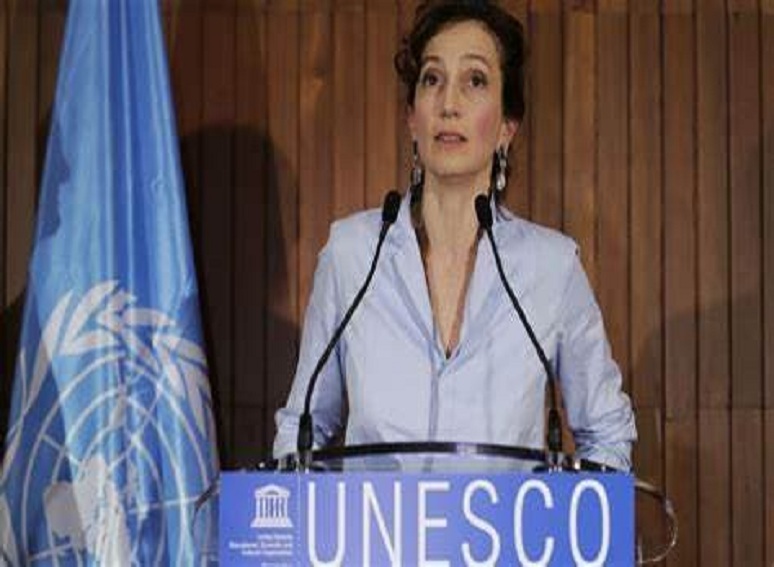UNESCO Director-General, Audrey Azoulay appeared Tuesday in a video on the organization’s website calling on governments across the globe to support a distance learning coalition and remote education as schools remain closed due to the novel coronavirus pandemic.
The coalition has already received pledges of support and collaboration from the International Labor Organization, the UN High Commission for Refugees, the United Nations Children’s Fund, the World Health Organization, the World Food Programme, and the International Telecommunication Union.
The Global Partnership for Education, Education Cannot Wait, the OIF (Organisation Internationale de la Francophonie), the Organization for Economic Cooperation and Development, and the Asian Development Bank have also joined the coalition.
The UNESCO coalition also counts on support from private sector actors, including Microsoft, GSMA, Weidong, Google, Facebook, Zoom, KPMG, and Coursera.
“We are working together to find a way to make sure that children everywhere can continue their education, with special care to the most vulnerable and disadvantaged communities,” said Tedros Adhanom Ghebreyesus, director-general of the World Health Organization.
The coalition, according to agency reports, aims to support governments in collating and implementing educational solutions to fit the socio-economic context of their countries, using a mixture of virtual learning resources and no-tech approaches to guarantee universal access to education.
“Partnership is the only way forward,” said Azoulay, who then announced the launch of UNESCO’s Global Education Coalition, designed to keep at-risk children and youth in education.
“Never before have we witnessed educational disruption on such a scale,” Azoulay emphasized.
“This Coalition is a call for coordinated and innovative action to unlock solutions that will not only support learners and teachers now but through the recovery process, with a principle focus on inclusion and equity.”
According to UNESCO, 1.5 billion children and young people around the world are unable to go to school due to the spread of COVID-19. The statistics amount to 87% of school-aged children globally.
UN special envoys and public figures emphasized the need for collaboration and communication to cope with the unprecedented disruption in a press release from UNESCO.
UN High Commission for Refugees Special Envoy Angelina Jolie said, “We must speed up the ways we share experience, and help the most vulnerable, whether or not they have internet access.”
Echoing the statements from Jolie, UN Deputy Secretary-General, Nigeria’s Amina Mohamed warned that the closure of schools and the economic impacts of the pandemic could cause serious harm to the world’s most vulnerable children and adults.
“For millions of children and youth from disadvantaged backgrounds, school closures could mean the loss of a vital safety net – of nutrition, protection and emotional support.”
If governments do nothing, Mohamed underlined, socio-economic disparities could widen.
“This is not a time to deepen inequalities. It is a time to invest in education’s power to transform. As we embark on the decade of action of the 2030 Sustainable Development Agenda, our responsibility as a global community is to leave absolutely no one behind.”
Digital and tech companies have pledged to uphold data protection and child protection standards.
Charitable associations Khan Academy, Dubai Cares, Fundacion Profuturo, and Sesame Street will also collaborate on the initiative.

